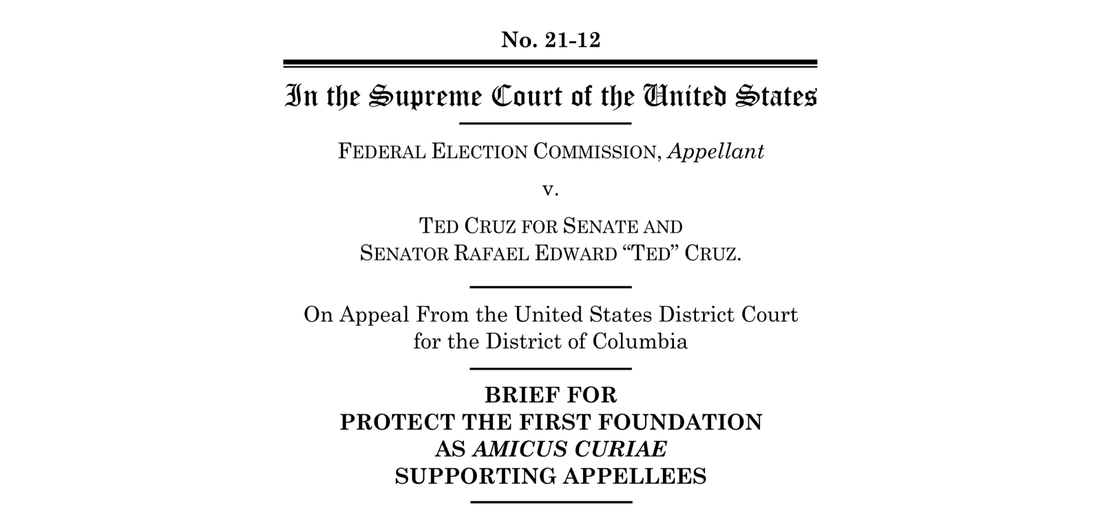|
Federal Election Commission v. Ted Cruz for Senate Protect the First Foundation filed an amicus brief in a case that challenges a restriction on the ability of campaign committees to repay funds a candidate loans to his own campaign.
The case involves Section 304 of the Bipartisan Campaign Reform Act, which imposes a $250,000 limit on the repayment of such loans using funds contributed after the election. Sen. Ted Cruz of Texas loaned $260,000 from his personal bank accounts and margin loans to his committee to finance his re-election. After the election, the Cruz campaign used pre-election contributions to repay other creditors before repaying Sen. Cruz himself. When the campaign began repaying Sen. Cruz the month after the election, the loan-repayment limit prevented the campaign from repaying $10,000 of Cruz’s personal loans. PT1st supports Sen. Cruz’s position because it involves Americans’ most fundamental rights to run for office and to pay for political speech. PT1st’s amicus brief demonstrated to the Court that: “The loan repayment limit is nothing more than political protectionism, passed by well-heeled and well-connected politicians with massive war chests that insulate them from the threat of a challenger.” PT1st noted that all candidates need access to funding early in a campaign to establish their place in the race, but early spending is particularly important for challengers. Candidates of modest means often must rely on their own resources to be competitive. The practical effect of the loan repayment limit is to deter candidates of limited means from spending money in advance of raising funds. Thus, “the loan repayment limit provides an advantage to incumbents at the expense of challengers, particularly challengers of limited means.” For all these reasons, PT1st wrote to the Court that Section 304 imposes an unconstitutional burden on free speech. Comments are closed.
|
Archives
June 2024
Categories
All
|
ABOUT |
ISSUES |
TAKE ACTION |



 RSS Feed
RSS Feed